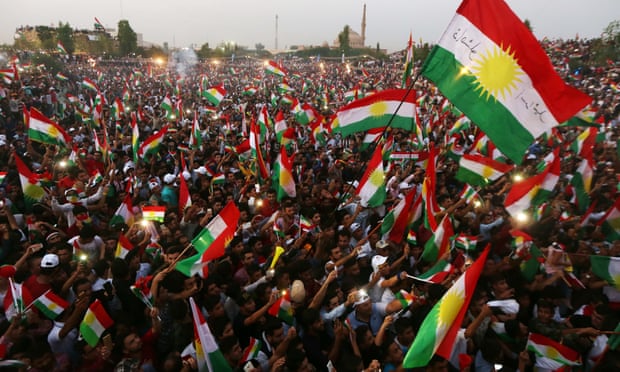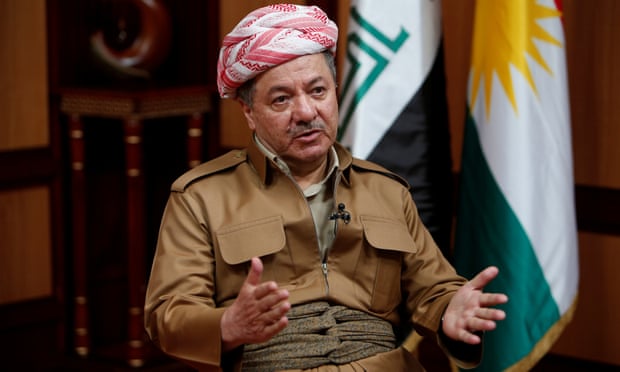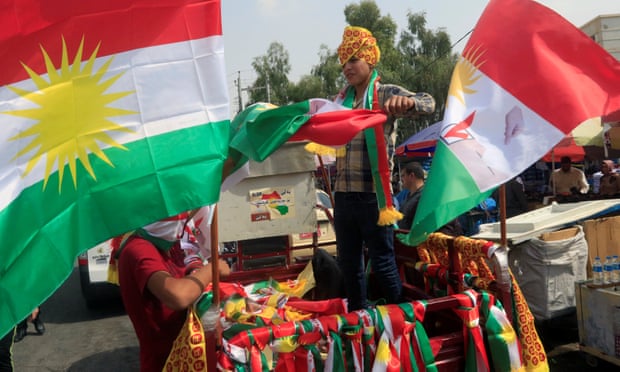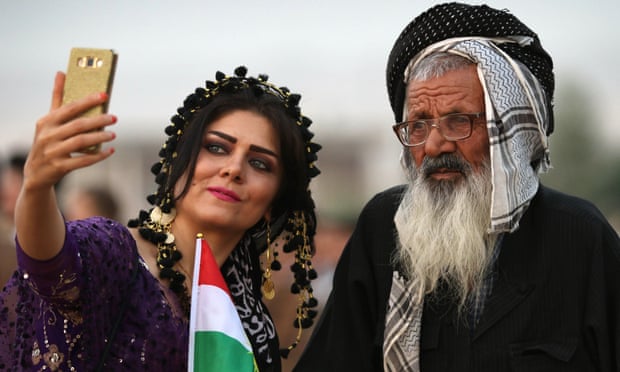

SULAIMANI, Kurdistan Region – Kurdish President Masoud Barzani has said that “serious talks” with Baghdad with the backing of the international community after the referendum could take up to one or two years during which they can negotiate the terms of Kurdistan leaving Iraq.
Addressing a large rally for independence in Sulaimani, Barzani said that the “referendum is to reach a sacred objective, that is independence.”
“We are prepared to enter serious, very friendly, and honest talks with Baghdad, with the international community, or with the support of the international community, so that we solve all the problems. If it needs time, one year or at the latest two years, we can solve all the problems within these two years. And then we can say ‘goodbye’ in a friendly way,” Barzani said, noting that afterwards, Kurdistan will be neighbors with Iraq.
He also said that there are “unfortunately no alternatives” offered to take the place of the referendum.
He said that he knows for sure that the people in Sulaimani would be “pioneers” on September 25 when they vote ‘Yes’ for independence.
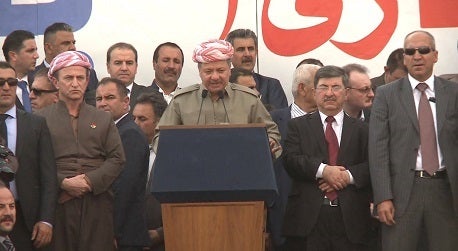
The capacity of Sulaimani Stadium is 10,500. People filled the stands and spilled onto the pitch, putting estimates at around 20,000 attendees.
Barzani repeated that Erbil chose to take the path of the referendum because Baghdad failed to remain faithful to partnership and to commit to the constitution.
He said some Iraqi officials thought the vote would not go ahead because of disunity among the people of Kurdistan. “But everyone was wrong. They have realized that the people of Kurdistan are all one when it comes to national matters, for independence,” Barzani told a large rally in Sulaimani.
Sulaimani is the stronghold of the Patriotic Union of Kurdistan (PUK) and the Gorran or Change Movement. Some PUK senior officials were present at the rally including Hero Ibrahim and Kosrat Rasul. Gorran has not supported the vote, but has chosen not to oppose it, either.
Barzani said now that Iraqi officials see there is unity and the Kurdistan parliament is active again, they can have no further excuses to ignore the people of Kurdistan.
The Kurdistan parliament voted to back the September 25 referendum when it convened on September 15 for the first time after two years suspension following tensions between Barzani’s ruling KDP and Gorran.
The international community, including the US, UN, and neighboring countries, has expressed its opposition to the referendum, mainly calling for the vote to be postponed, something Erbil has so far refused to accept.
Barzani said Baghdad was “encouraged” to reject all suggestions with respect to relations with Kurdistan when it saw the international community take a firm stance against the vote.
Earlier on Wednesday, Iraqi Vice-President Nouri al-Maliki, head of the ruling Shiite State of Law Coalition, rejected a UN or any internationally backed alternative to the referendum, instead demanding Erbil cancel the vote.
Prime Minister Haider al-Abadi even went a step further on Tuesday saying they reject a Kurdistan referendum on independence “now or in future.” Baghdad considers the vote “unconstitutional” and a “threat" against the unity of Iraq.
Erbil says Baghdad has violated at least 55 articles of the Iraqi constitution, including the budget, the Peshmerga defence budget, and Article 140 that concerns the fate of disputed or Kurdistani areas.
Barzani said the referendum vote is a “normal and legal” process practiced by the people of Kurdistan to achieve independence for a nation that has been oppressed since the creation of Iraq some 100 years ago.
He said those who reject a referendum must know they are denying the people their right to self-determination.
Barzani said that an independent Kurdistan would make sure that chemical attacks like Halabja never occur again.
Sulaimani is about 80 km northwest of Halabja, the site of the worst chemical attack ever carried out against a civilian population. The attack by the then Iraqi regime killed 5,000 people and injured another 10,000.
The president described as a mistake Kurds’ commitment to establishing a new Iraq after the 2003 US-led invasion. He said Kurds used to have an “independent state” before 2003, but they chose to join the new Iraq hoping that the era of denial was over.
They soon realized, however, that in Baghdad “only faces have changed. Otherwise the culture of intolerance is the same.”
Say YES to KURDISTAN





















